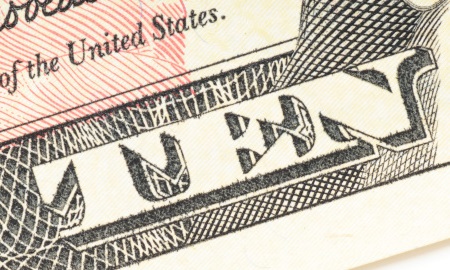Wal-Mart Stores Inc. (NYSE: WMT) raised minimum worker pay to $9 an hour, which should rise to $10 next year. By some estimates, Wal-Mart’s plan will cost it $1 billion a year, and it only hits the company’s U.S. operations. The decision put pressure on McDonald’s Corp. (NYSE: MCD), the largest fast-food company, to do the same. Wal-Mart can afford the decision. It may be harder for McDonald’s to follow suit.
McDonald’s had net income of $4.8 billion last year, down 15%. Based on same-store sales, that figure could fall again this year. Revenue for 2014 was $28.1 billion, and it is not growing. A pay increase would be done into the jaws of rapidly falling earnings.
ALSO READ: America’s Most Hated Companies
Any wage increase will not affect all of McDonald’s revenue. The company did not break out U.S. revenue in the most recently reported quarter, but many estimates set overseas revenue at 30% of the total. In the United States, a calculation of costs gets complicated further. Revenue from stores operated by the company is about two-thirds of the total. Franchises make up the rest. These franchises may be forced to follow the company’s lead in any wage increase. It may be that not a dollar of this cost gets passed back to the parent — good news for McDonald’s earning power.
For several years, much of McDonald’s cash from operations has been spread to shareholders. It plans to do so in the future as well. In its press release about 2014 results, management said:
Returned $6.4 billion to shareholders through dividends and share repurchases, in connection with our $18-$20 billion, 3-year cash return target for the years 2014-2016/
It is a commitment that will drag on the effects of any decision about wages.
A calculation of the earnings effect of a wage increase has to be done on the back an envelope. McDonald’s has not given a number, and if it holds the line on wages, it never will. Because a wage increase might only reach half of McDonald’s U.S. locations, the estimate becomes muddier. It is safe to say that, given McDonald’s employee base and the Wal-Mart $1 billion cost to raise wages, McDonald’s faces at least $100 million if it follows the world’s largest retailer. Under many circumstances, that would not be a great deal of money. Offset by falling earnings and a massive commitment to return money to shareholders, the decision may be harder.
ALSO READ: Wal-Mart Wage Hike Gets Mixed Reaction
Are You Still Paying With a Debit Card?
The average American spends $17,274 on debit cards a year, and it’s a HUGE mistake. First, debit cards don’t have the same fraud protections as credit cards. Once your money is gone, it’s gone. But more importantly you can actually get something back from this spending every time you swipe.
Issuers are handing out wild bonuses right now. With some you can earn up to 5% back on every purchase. That’s like getting a 5% discount on everything you buy!
Our top pick is kind of hard to imagine. Not only does it pay up to 5% back, it also includes a $200 cash back reward in the first six months, a 0% intro APR, and…. $0 annual fee. It’s quite literally free money for any one that uses a card regularly. Click here to learn more!
Flywheel Publishing has partnered with CardRatings to provide coverage of credit card products. Flywheel Publishing and CardRatings may receive a commission from card issuers.
Thank you for reading! Have some feedback for us?
Contact the 24/7 Wall St. editorial team.


